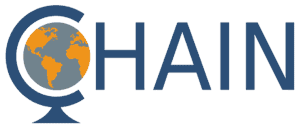By Caroline Costongs, EuroHealthNet Director
‘European Union citizens live, on average, longer and healthier lives than previous generations. However, The EU is faced with an important challenge: the large gaps in health which exist between and within EU Member States. Moreover, there are indications that such gaps may be growing. Increased unemployment and uncertainty arising from the current economic crisis is further aggravating this situation.’
These are not my words, nor are they new ones. Ten years ago these lines opened the European Commission’s communication on solidarity in health. Sadly, although the economic crisis is over (on paper), these words still ring true.
So, ten years on, it seems a good moment to reflect on where we have come and what we need to do next. It is indeed not all doom and gloom.

Years of focus on growth, jobs, and related austerity measures led to a reduction of public spending on health, education, and social protection. The most vulnerable are the most affected, and Europe is now facing the consequences. Health inequalities are persistent and increasing in most European countries. [1],[2]
The UN Sustainable Development Goals and the pledge to ‘not leave anyone behind’ was a much-needed process and gave a strong impetus to social equity. Equally the European Pillar of Social Rights has also been a game-changer. You can read about what the Pillar means for public health on our website. Thanks to hard work of colleagues from the EuroHealthNet partnership and outside it, health inequalities are again on the political agenda – albeit still not high enough.

As we look to the future, we need to ask ourselves how the changing landscape will affect our work.

We need to ask ourselves how we change as the demographics of our countries change – how can we do better when it comes to migrant’s health, wellbeing, and integration? What about ageing and inequalities and adequacy of our social protection systems? How as ever, we must address the persistent issue of financial sustainability of our health and care systems. And I can go on.
Another lesson learnt is that everything is linked to everything. Whole-of-society approaches will be needed to truly achieve solidarity in health. We therefore welcome the recent Council Conclusions on the Economy of Wellbeing. This is a promising strategy capable of changing the mindset from silo-thinking to system-thinking and to comprehensive approaches. New ideas and solutions are also emerging from the European Commission, such as the European Green Deal, SDGs in the European Semester and an Action Plan for the European Pillar of Social Rights. EuroHealthNet stands ready for a revitalisation and intensification of much needed action for the next ten years.

Physical activity prescribing has a long history, but in recent years ‘social prescribing’ has become more of a buzzword. We look at what 20 years of Swedish experience can teach us, how the Public health agency of Sweden is exporting it’s knowledge, and how new countries are able to follow its model.
We also cover migrant health in this issue. We look at delivering effective psychological support through shared understanding and how ‘Value Based Counselling’ – initially a short-term support intervention for crisis situations is being adapted and widely used to support migrants mental health. From Pharos (expert centre on health inequalities), we hear about resources and methods to give migrant children the best possible start in their new homes by collaborating with schools, parents, and the children themselves. This includes cultural sensitivity training, cultural mediators, and education methods. If you are interested in how migrant health in urban settings and changing public health practice, you can watch a recording of our conference session held last month.
Finally, we have an article on Nutri-Score, both in French and English. This label, appearing on more and more products on our shelves, is helping consumers make healthier choices when shopping, and encouraging producers to improve the nutritional quality of their foods. Developed by our Member, Public Health France, the label is being adopted by other countries and private companies.
As always, I hope you enjoy our magazine. If you want to receive the next edition direct to your mailbox, don’t forget to sign up
[1] Vonneilich, N., Lüdecke, D. and von dem Knesebeck, O., 2019. Educational inequalities in self-rated health and social relationships–analyses based on the European Social Survey 2002-2016. Social Science & Medicine, p.112379.
[2] Hu, Y., van Lenthe, F.J., Borsboom, G.J., Looman, C.W., Bopp, M., Burström, B., Dzúrová, D., Ekholm, O., Klumbiene, J., Lahelma, E. and Leinsalu, M., 2016. Trends in socioeconomic inequalities in self-assessed health in 17 European countries between 1990 and 2010. J Epidemiol Community Health, 70(7), pp.644-652.

Caroline Costongs
Caroline Costongs is Director of EuroHealthNet and expert in public health and health promotion. Caroline leads a multi-disciplinary team working on European and (sub)national policy, advocacy, research and capacity building addressing health inequalities. Caroline is active in various EU and WHO fora, Advisory Boards and various EU projects, and is a member of the ICC – International Council for the European Public Health Conference.

